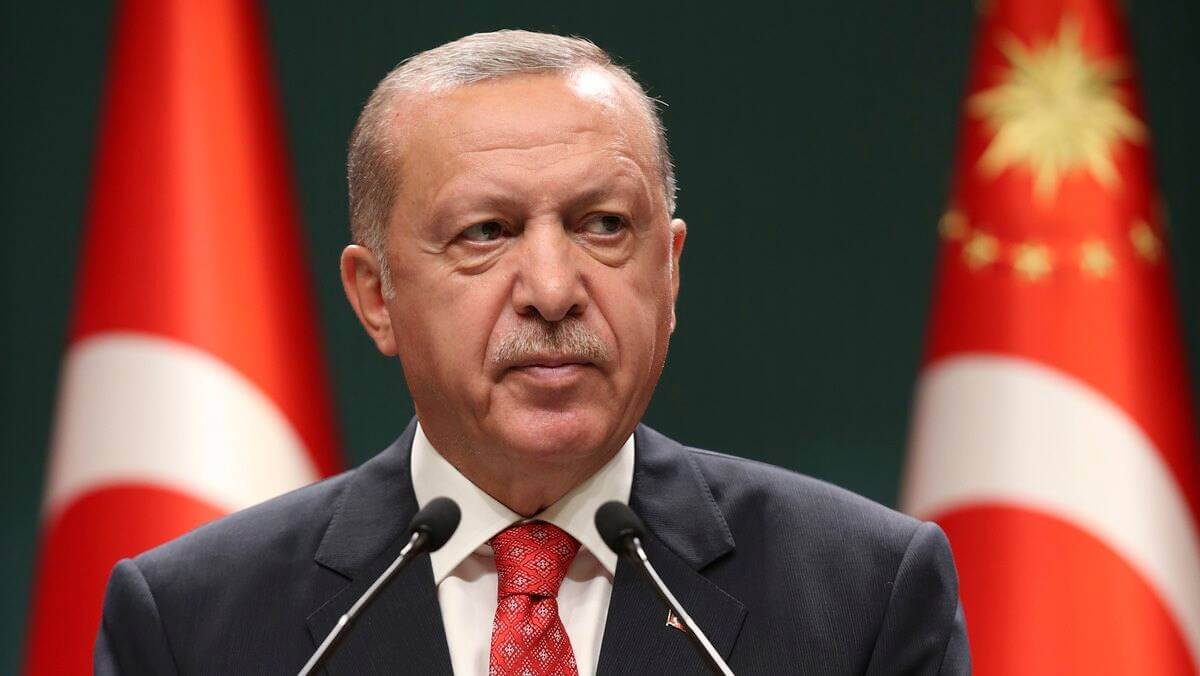Under President Recep Tayyip Erdoğan, Turkey has invested significant effort and money into gaining a greater political, cultural, and economic foothold in the Balkan states. To this end, it has provided development aid, led major infrastructure projects, opened universities and restored mosques, encouraged Turkish businesses to invest in the region, and fostered dialogue between divided communities.
According to the recent official records, Turkey’s exports to Balkan countries exceeded $10 billion from January through October this year, with sales seeing an increase in some markets despite the current pandemic and the lira crisis. Data compiled by Anadolu Agency (AA) shows that sales to the Balkans—including Albania, Bosnia-Herzegovina, Bulgaria, Croatia, Montenegro, Kosovo, North Macedonia, Romania, Serbia, Slovenia, and Greece—amounted to $10.21 billion in the first 10 months of 2020. The number marks a 7.5% decline in exports compared to 2019, due to the coronavirus crisis. Romania was the top market, as it received over $3 billion worth of Turkish goods, followed by Bulgaria with $1.99 billion, Greece with $1.39 billion, and Slovenia with $1.26 billion. Turkey’s biggest metropolis, Istanbul, shouldered 43.9% of the exports to the region by itself, with over $4.48 billion worth of goods being sent from the city.
Following the end of the Balkan Wars, since the 1990s, Ankara has increasingly used its significant soft power (through cultural, historical, and religious ties) to consolidate its political, economic, and cultural influence in the region. Initially, Turkey played an active role in establishing regional stability and integration initiatives such as the Southeast European Cooperative, Stability Pact, South East- East European Cooperation Process, and NATO-led South East Europe Initiative to sow the seeds of Turkish influence. At that stage, the country’s foreign policy approach to the region was aligned with the European Union’s (EU) policies and aimed to improve relations with neighbouring countries and involved visa-free travel and free trade zones. AKP, (Adalet ve Kalkınma Partisi, also known as the Justice and Development Party), the Turkish ruling party, had a clear desire to reduce the influence of the Kemalist establishment in Turkey. The strategy quickly won international credibility by pushing ahead with reforms to accelerate Turkey’s accession to the EU.
However, once Ahmet Davutoglu was appointed as the Turkish foreign minister in 2009, there was a shift from just building friendly relations with these countries to creating a more decisive influence over regions that once fell under Istanbul’s influence. The broader aim was to establish Turkey as a global power, and this continued during Davutoglu’s term as Prime Minister as well.
The results of this Neo-Ottoman campaign to spread Turkey’s soft power in the Balkans, however, were mixed. On the one hand, its high-intensity diplomacy and cultural initiatives raised Turkey’s profile and generated positive sentiments among the elite – in line with its growing self-confidence in the international arena. On the other hand, the influence was limited to the Muslim communities of Balkan states, as the Turkish community centres set up by Davutoglu did not live up to their potential to spread Turkish culture, since they chose to engage only in Turkish, which was not widely spoken outside the Turkish community.
Though Erdoğan also took charge of expanding Turkish influence in the Balkan States, since 2016, Turkey has reduced the pace and intensity of its regional activism and diplomatic initiatives and replaced it with a focus on greater economic ties. Erdogan’s vision revolves around disassociating Turkey’s image from the EU and building an independent Turkish influence. Alongside economic and security relations, Turkey also wishes to be the patron saint of the Western Balkans’ Muslim populations. This goal is yet to be realised, but Erdogan has not shied away from expressing his desire to raise a “pious generation” in a more devout society within Turkey. During his 17-year reign, he has constructed thousands of new mosques and Islamic vocational schools, the most notable being his recent conversion of the iconic museum and tourist destination Hagia Sophia into a mosque.
As the European Union seeks to increase its sway in the western Balkans, they fear that they will have to contend with a more assertive Russia and the growing ambitions of Turkey. However, it is important to note that, in spite of Turkey and Russia’s close partnership in other regions, they still do not have a joint policy for Balkan states. The EU has expressed concern that Turkey could influence Balkan nations’ membership to the European Union; however, Ankara has said that the country’s role in the Western Balkans does not compete with or affect the EU’s plans. Balkan nations, for their part, have also stated that their warm relations with Ankara are not an alternative to EU membership and that the latter still remains an important goal. However, the ongoing tensions between Turkey and some of the European countries, particularly with France, threatens to pit an alliance with Turkey at odds with the goal of EU membership. In such a scenario, if Macron and co. demand dissociation from Turkey as a precondition for EU membership, they may well create further tensions between Erdoğan and the European bloc, as well as undermine crucial economic ties for already cash-strapped Balkan nations.
Erdoğan Expands Economic Ties With Balkan States, Potentially Leading to Showdown With EU
Data compiled by Anadolu Agency shows that sales to the Balkans amounted to $10.21 billion in the first 10 months of 2020.
November 10, 2020

Source: The Indian Express
